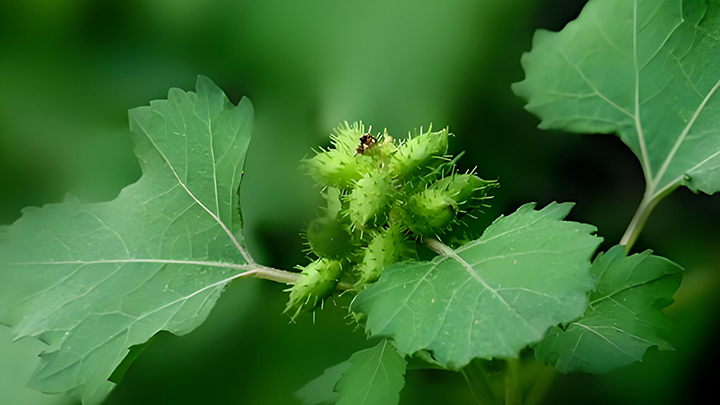Eating for Relief: A Dietary Guide for Rhinitis Sufferers
For those living with rhinitis, managing symptoms often extends beyond medications and nasal sprays. The food you consume can play a significant, yet frequently overlooked, role in either calming or triggering inflammation. While not a substitute for medical treatment, adopting an anti-inflammatory diet can be a powerful strategy to reduce the frequency and severity of rhinitis flare-ups.
Here is a guide on what to include and what to avoid in your diet to help manage your rhinitis.
The Core Principle: An Anti-Inflammatory Diet
The primary goal is to reduce systemic inflammation in the body, which can, in turn, lessen the inflammatory response in your nasal passages. Focus on whole, nutrient-dense foods and avoid processed items.
Foods to Embrace: Your Anti-Rhinitis Allies
Incorporate these foods to help soothe your system:
- Omega-3 Fatty Acids: The Inflammation FightersSources: Fatty fish (salmon, mackerel, sardines, tuna), flaxseeds, chia seeds, walnuts.Why: Omega-3s are renowned for their potent anti-inflammatory properties, which can help counteract the inflammation that causes nasal congestion and irritation.
- Fruits and Vegetables: The Antioxidant PowerhousesSources: Berries (blueberries, strawberries), leafy greens (spinach, kale), bell peppers, broccoli, tomatoes, onions.Why: They are packed with antioxidants (like Vitamin C and Quercetin) that combat oxidative stress and stabilize mast cells, which are responsible for releasing histamine during an allergic reaction.
- Spices with Natural Anti-Inflammatory PropertiesSources: Turmeric (containing curcumin), ginger, garlic.Why: These spices have been shown in studies to naturally reduce inflammation. Add fresh ginger to tea or use turmeric in curries and soups.
- Local, Raw Honey: A Soothing Traditional RemedyWhy: The theory is that consuming local honey, which contains trace amounts of local pollen, may help your body build a tolerance to these allergens over time (a form of oral immunotherapy). While scientific evidence is mixed, many users report benefits. A teaspoon daily can be soothing.
- Probiotic-Rich Foods: Supporting Gut HealthSources: Yogurt, kefir, kimchi, sauerkraut, kombucha.Why: A healthy gut microbiome is linked to a well-regulated immune system. Probiotics can help modulate immune responses, potentially reducing the severity of allergic reactions.
Foods to Limit or Avoid: Potential Triggers
Be mindful of these items, as they can exacerbate inflammation or mimic allergic responses.
- Common Inflammatory FoodsWhat: Processed foods, refined carbohydrates (white bread, pastries), sugary drinks, and foods high in trans and saturated fats (fried foods, red meat).Why: These foods can promote systemic inflammation, making your body more reactive to allergens and irritants.
- Histamine-Rich FoodsWhat: Aged cheeses, cured meats (salami, ham), fermented foods (soy sauce, vinegar), alcohol (especially red wine and beer), smoked fish, spinach, tomatoes.Why: Histamine is a chemical your body releases during an allergic reaction. Consuming foods high in histamine can directly trigger or worsen symptoms like sneezing, itching, and congestion in sensitive individuals.
- Food Additives and PreservativesWhat: Artificial colors, benzoates, sulfites, and monosodium glutamate (MSG).Why: For some people, these chemicals can trigger pseudo-allergic reactions, leading to rhinitis-like symptoms.
- Dairy Products (A Common Suspect)Why: The link between dairy and increased mucus production is debated. While science doesn't strongly support that dairy creates more mucus, it can make existing mucus thicker and more irritating for some people. If you suspect dairy is a problem, try eliminating it for two weeks to see if your symptoms improve.
- Very Spicy FoodsWhy: While spices like ginger and turmeric are anti-inflammatory, very spicy foods (like hot peppers) can trigger a runny nose (gustatory rhinitis) due to nerve stimulation. This is a temporary reflex, but it's best avoided when you're already symptomatic.
Additional Practical Tips
- Keep a Food Diary: Track what you eat and your subsequent rhinitis symptoms. This can help you identify your personal trigger foods.
- Stay Hydrated: Drinking plenty of water helps thin mucus, making it easier to drain and relieving congestion.
- Cook from Scratch: Preparing your own meals gives you full control over the ingredients, helping you avoid hidden additives and preservatives.
Conclusion
Managing rhinitis is a multi-faceted endeavor, and diet is a crucial piece of the puzzle. By consciously choosing anti-inflammatory foods and avoiding potential triggers, you can empower your body to better control inflammation and allergic responses. Always remember to discuss significant dietary changes with your doctor or a registered dietitian to ensure they are appropriate for your specific health needs. A thoughtful approach to eating can be a simple, natural, and effective way to breathe easier and improve your overall well-being.




